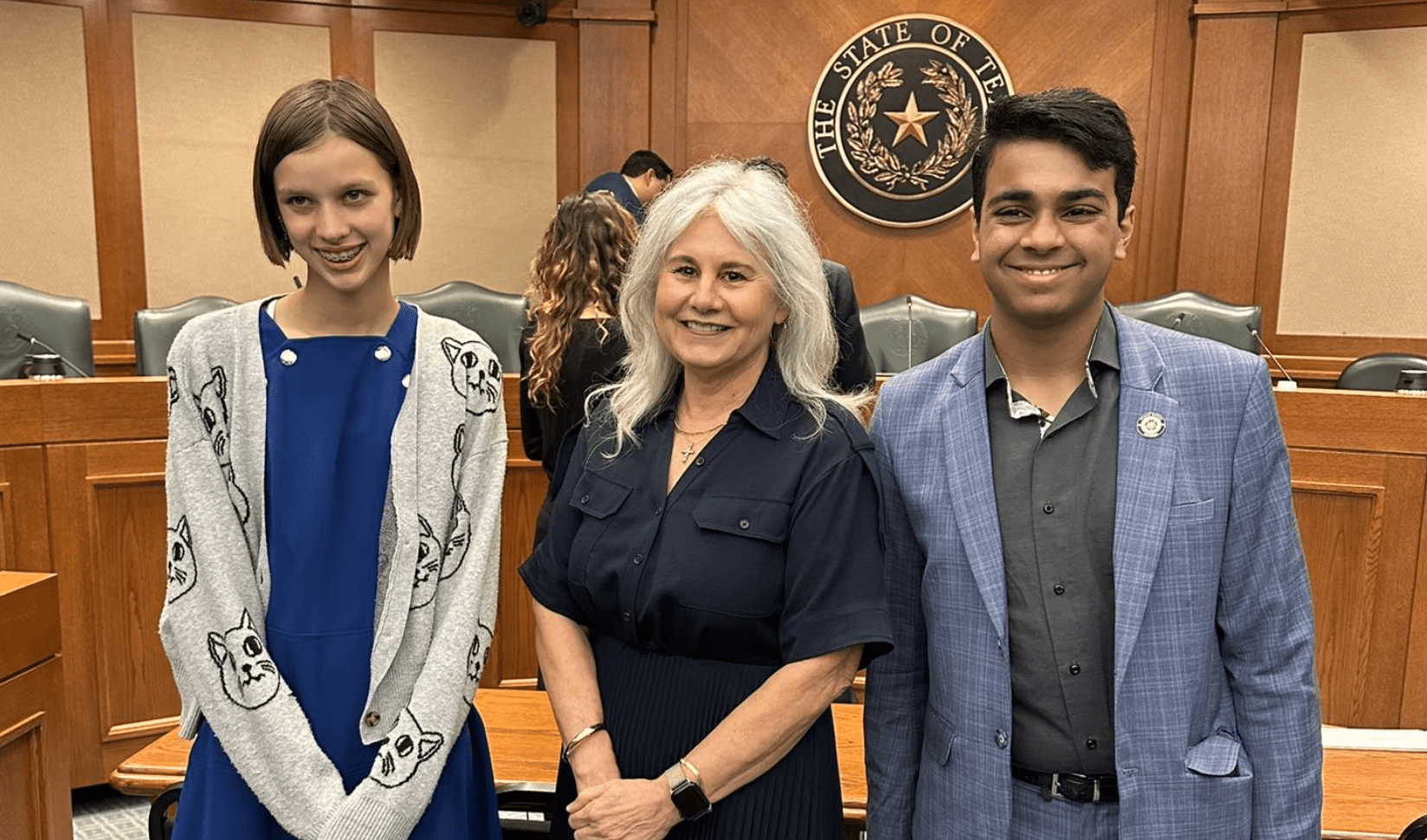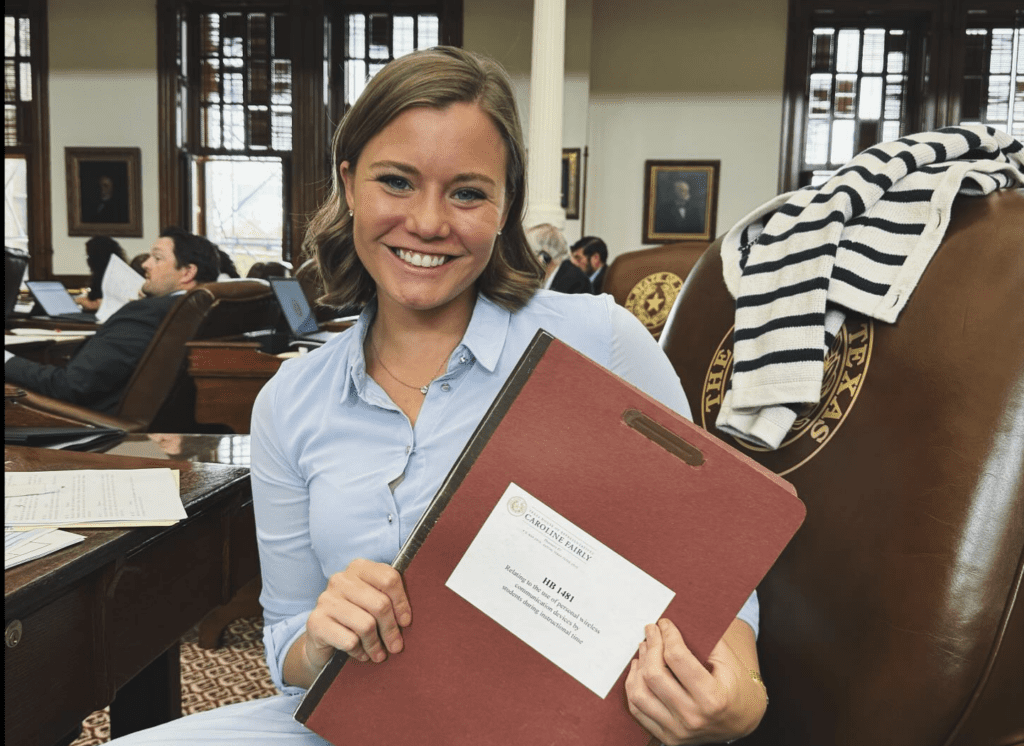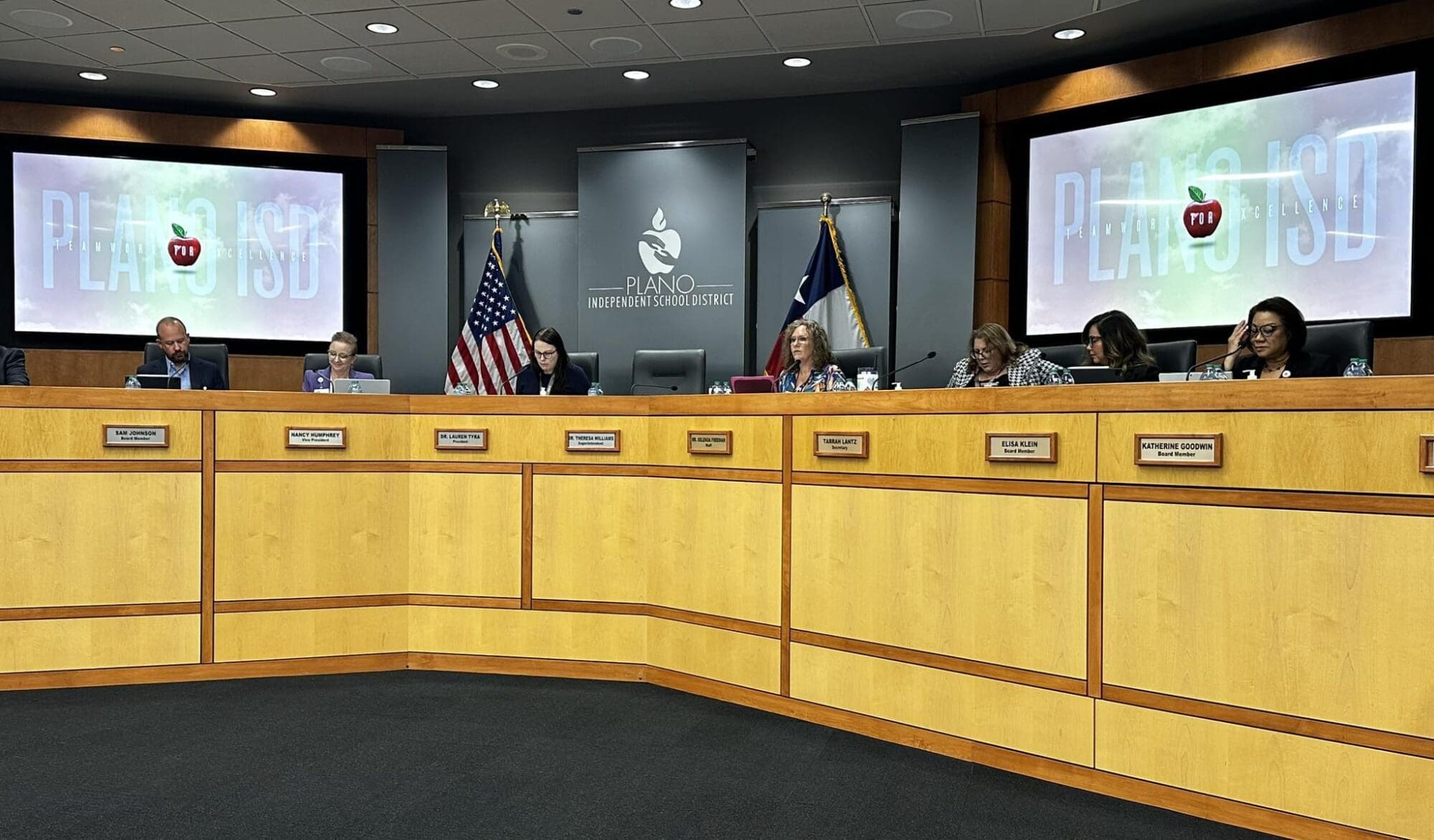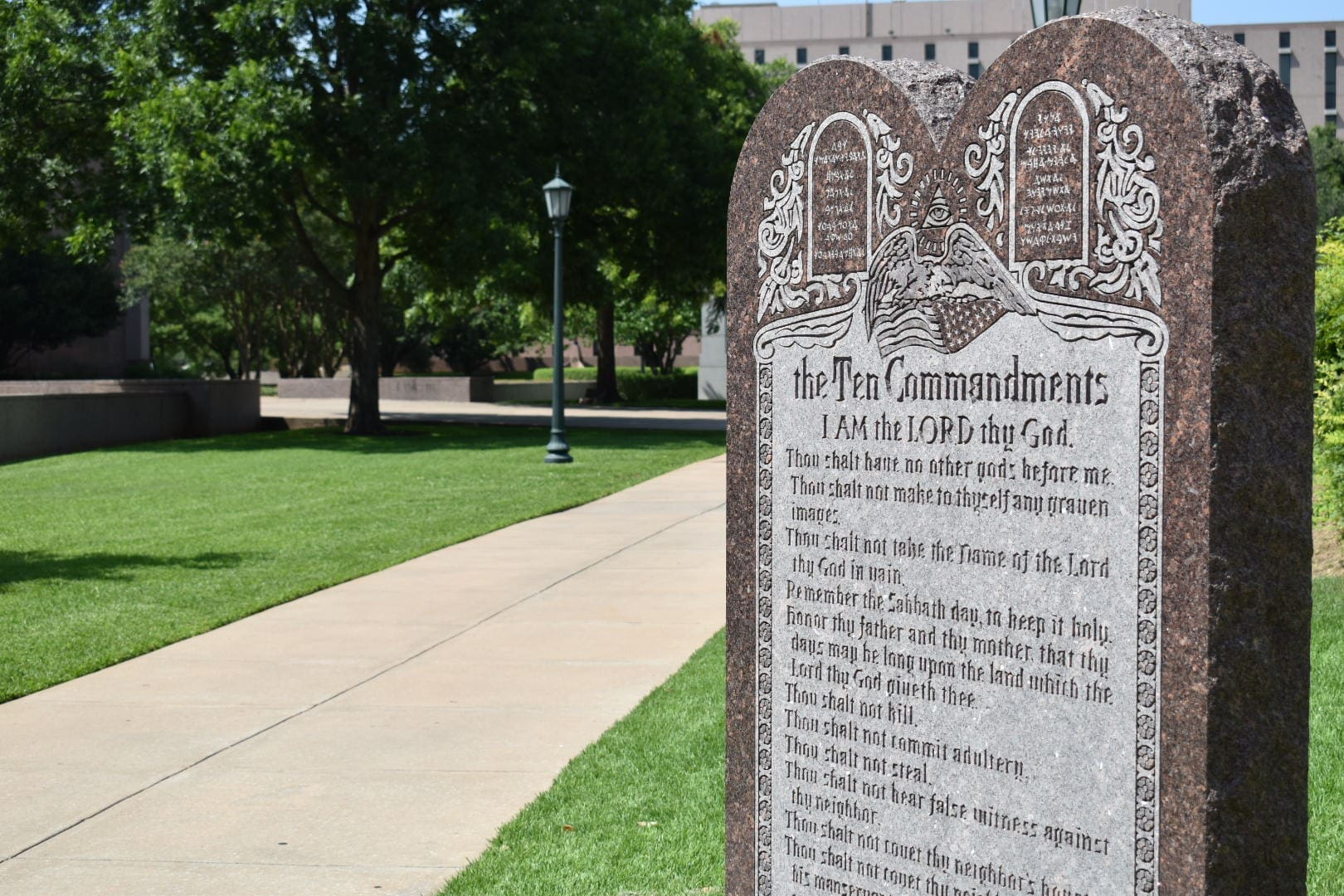Texas could soon become the largest state to enact “bell-to-bell no-cell” policies at public schools.
Bipartisan legislation passed by the Texas House to restrict students’ use of cell phones at school received support from parents and students during a Senate committee hearing with just two weeks remaining in the legislative session.
House Bill 1481 by State Rep. Caroline Fairly (R–Amarillo) would require public school districts to adopt policies that prohibit students from using personal communication devices while on campus during the school day.
The bill has 86 co-authors, including more than 20 Democrats.
During a March public hearing in the House Public Education Committee, Fairly emphasized that school districts would maintain “local control” to decide specific no-phones policies—from prohibiting phones on campus to providing secure storage areas in classrooms, or simply requiring students to keep devices in their backpacks during class time.
“There’s a lot of freedom for the district to decide how they implement that,” said Fairly.
House lawmakers passed HB 1481 on April 24 with a 128-17 vote.
Members of the Senate Education K-16 Committee heard public testimony Tuesday that overwhelmingly supported HB 1481.
State Sen. Brandon Creighton (R–Conroe), who chairs the committee, presented Fairly’s bill as aligning with a “growing consensus” nationwide on the harmful effects of excessive cell phone usage on students’ education and health.
“Recent research from the American Medical Association’s Adolescent Health Journal shows that young students spend an average of 1.5 hours on smartphones during the 6.5-hour school day,” he said. “If students aren’t paying attention in class or are failing to connect with their peers during lunchtime, or worrying about the digital world more than their education, we’re setting our kids up for failure.”
Creighton noted the bill includes “commonsense exceptions” for students who use their phones to monitor health issues or implement special education accommodations.
He said 24 states have enacted policies restricting the addictive devices during instructional time, and many Texas school districts have voluntarily adopted cell phone policies.
Several parents and students testified Tuesday in favor of HB 1481, including Texas mom Maurine Molak, who co-founded David’s Legacy Foundation to advocate against cyberbullying, sextortion, and online addiction.
Her son, David Molak, died by suicide after enduring relentless online harassment and was the inspiration for David’s Law, enacted in 2017 to combat cyberbullying in Texas schools.
“David’s story is not an isolated tragic event,” testified Molak. “In 2023, approximately 781,000 Texas children self-reported cyberbullying victimization, and an alarming number of these incidents occurred during school.”
“There is no doubt in my mind that access to these personal devices during the school day is impacting the health and well-being of students and disrupting learning,” Molak told the committee members. “If Texas passes HB 1481, we will be the largest state to pass a ‘bell-to-bell no-cell’ bill.”
She said HB 1481 “will ensure our students are focused on learning and not distracted by their devices for six to seven hours a day. That will truly be a gift.”
Two teenage students also testified in favor of HB 1481, including 13-year-old Stephanie Colson.
“I agree that kids in school should not have their personal devices while on campus during the school day,” Colson told the committee.
“What is the main reason of all the problems at school?” she asked.
Cyberbullying? Phones. Online relationships? Phones. Not-appropriate games during school? Phones. When you’re supposed to listen in class, what are most kids doing? On their phones. I can’t even tell you how many people tell me not to snitch on them in class each day.
Stephanie’s mother, Faith Colson, also testified in support of HB 1481. A victim of sexual abuse by a high school teacher in Illinois, she was the inspiration for that state’s Faith’s Law addressing sexual misconduct in schools.
Colson told the committee she would not allow her children to have cell phones because they are harmful.
“These devices are addictive. They provide access to harmful content. They provide access to harmful people. They shorten attention spans and reduce opportunities for empathy. And in class, they’re a constant distraction from learning,” she testified.
My husband sees this as a teacher, and I see it as a mother of school-age children. Technology is obviously here to stay, but phones in classrooms are not helping kids learn, and they’re making it harder for teachers to teach. Even if some kids follow the rules, the presence of phones creates disruptions and distractions and serves no academic purpose.
“I hope that this bill starts a conversation next session regarding the time spent on school-issued devices,” she added. “Our children need to be prepared for work in this century, but sticking school-issued screens in front of them all day is not going to do that.”
Rachel Preston, a 14-year public school teacher, also testified in favor of restricting cell phone usage on school campuses.
“When implemented by the schools in which I have worked, student engagement increased each time,” said Preston. “I would like to urge clarification that these devices can be used for academic activities.”
“This bill is probably one of the most important bills we’re going to pass this session, because this can literally free up a whole generation of students,” said State Sen. Paul Bettencourt (R–Houston).
At least 20 Texas school districts have adopted policies to limit students’ cell phone use in class, including Richardson, Grand Prairie, Killeen, and Keller—where parents were split over the decision.
Texas Scorecard readers who responded to a survey last August also reported mixed opinions about restricting students’ access to cell phones at school. Advocates said the move removes a major source of distraction in the classroom, while opponents said it interferes with parents’ right to monitor their children.
Senators left HB 1481 pending in committee.
Time is running short for lawmakers to consider and pass bills before the regular legislative session ends on June 2.
No ads. No paywalls. No government grants. No corporate masters.
Just real news for real Texans.
Support Texas Scorecard to keep it that way!






